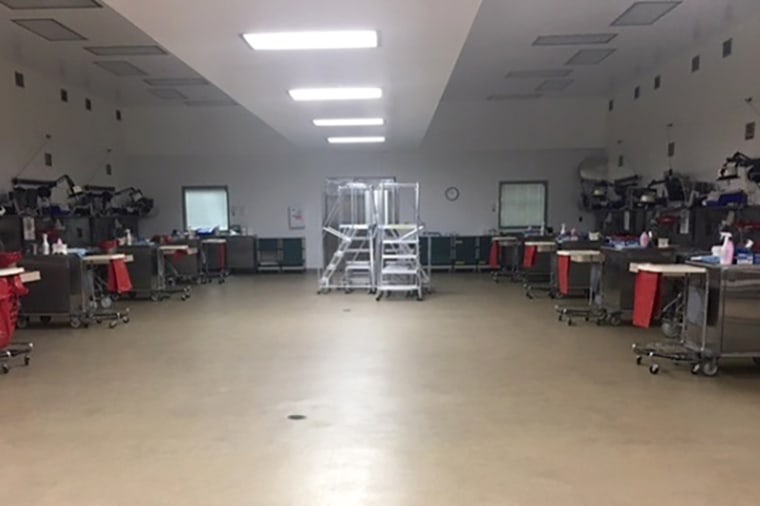
The military’s medical examiner retained hundreds of organs removed during autopsies — including people’s brains and hearts — frequently without notifying family members or, in some instances, against their wishes, according to a watchdog report.
For years, the Armed Forces Medical Examiner System, which conducts autopsies on service members and others who die under federal jurisdiction, lacked consistent procedures for handling and storing organs removed during autopsies, the Pentagon’s Inspector General found.
A Department of Defense official confirmed on Friday that the military’s medical examiner retained 553 “specimens” belonging to 433 people at its Dover Air Force Base morgue in Delaware. The official said the military is not actively contacting those relatives but instead is asking people who suspect a loved one may be included in that tally to email the military to reclaim the remains.
“It’s mainly in order to not retraumatize families,” the official added of the decision not to proactively inform families. “Some of these are from many, many years ago.”
Get a weekly recap of the latest San Francisco Bay Area housing news. Sign up for NBC Bay Area’s Housing Deconstructed newsletter.
The Pentagon’s Inspector General warned that because the medical examiner did not keep complete and accurate records for retained organs, officials may not be able to effectively answer families’ questions, which “could cause emotional distress.”
The Inspector General’s review included more than 200 autopsies spanning from 2006 through 2022. Investigators found that the military failed to record relatives’ wishes in more than half of the cases reviewed. And when they did record their requests for the disposal of their remains, they failed to follow them in 41% of the cases.

In one case from 2010, the next of kin asked for organs retained during an autopsy to be cremated and delivered to a specific location, the report said. But as of last March, the organs were not cremated and remained in the medical examiner’s inventory.
U.S. & World
In response to the findings, the Department of Defense is taking steps to analyze and modernize its medical examiner’s tracking system, the agency said in a letter to the Inspector General.
“There are two distinct ethical failures here,” said Eli Shupe, an assistant professor of bioethics at the University of Texas at Arlington, who reviewed the report at NBC News’ request. “There’s the failure to notify families, and then there’s a failure to respect the wishes of the next of kin when they’ve gone through the trouble of soliciting those wishes.”
She noted that the IG report warned the findings could be upsetting to people whose relatives may be included in the 433, as they may be unaware that the bodies they buried or cremated were incomplete.
“This kind of negligence is something that people will find extremely distressing,” Shupe said, “if they find out that their father’s organs were retained and maybe disposed of without their knowledge or against their wishes.”
The military revised its policy in September 2022 and no longer requires its medical staff to notify family members if organs are retained during an autopsy.
This story first appeared on NBCNews.com. More from NBC News:



